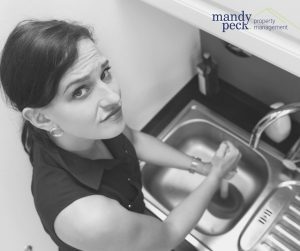
Plumbing maintenance – Who is responsible, landlords or tenants?
We are asked all the time about plumbing maintenance and who is responsible for plumbing issues that arise during a tenancy, so we have created a few tips to help.
The responsibility for plumbing repairs and maintenance is a frequent point of contention between landlords and tenants. But both parties have a part to play during a tenancy.
The landlord is responsible for ensuring their property is well maintained, is in a safe state of repair and suitable for tenants to occupy.
However, from the moment a Residential Tenancy Agreement has been signed and the tenant has moved in, the responsibility for maintaining the property is shared.
During the lease term, it is the tenant’s responsibility to take good care of the property and maintain functional aspects. It is the tenant’s responsibility to ensure the property is kept clean and that they’re diligent in preventing issues from arising.
For example, the tenant needs to be sure not flush or wash things down drains and toilets that could cause blockages.
How to handle emergency plumbing problems
If an emergency occurs at the property, the landlord should be called to take action. But if the tenant calls the landlord to send a plumber, and the plumber then reports the issue was caused by the tenant (i.e. hair has blocked the drain in the shower), it would be the tenant’s responsibility to pay for the work to clear the drain.
What is classed as an emergency plumbing problem?
Sometimes it can be difficult to know what defines a plumbing emergency and what can wait until the following day for attention. Sometimes things can go wrong and, as a tenant, you need to make a quick decision about who to contact and what to do.
According to the Residential Tenancies Act, emergency repairs can include:
- A burst water service
- A blocked or broken toilet system
- A serious roof leak
- A gas leak
- Flooding or serious flood damage
- Serious storm damage
- A failure or breakdown of any essential service or appliance provided by your landlord or agent for hot water, water, cooking, heating, or laundering
- Failure or breakdown of the gas or water supply
- An appliance, fitting or fixture that is not working properly and causes a substantial amount of water to be wasted
Your Residential Tenancy Agreement should include contact information for your agent, or instructions on who to call in case of a plumbing emergency.
Overall, it’s the tenant’s responsibility to keep the rental property clean and ensure that you do not cause a plumbing issue, and it is the landlord’s responsibility for making sure the property is safe and maintained for a tenant to live in.
At the end of the day, if you’re renting a property and there’s a plumbing problem that isn’t your fault, the responsibility lies with the landlord.
If you’re renting a property through Mandy Peck Property Management, and you’re not sure if you are responsible for a plumbing issue at your property, you can call us and we can advise who’s responsibility it would be to have the issue resolved before a plumber is appointed to attend.